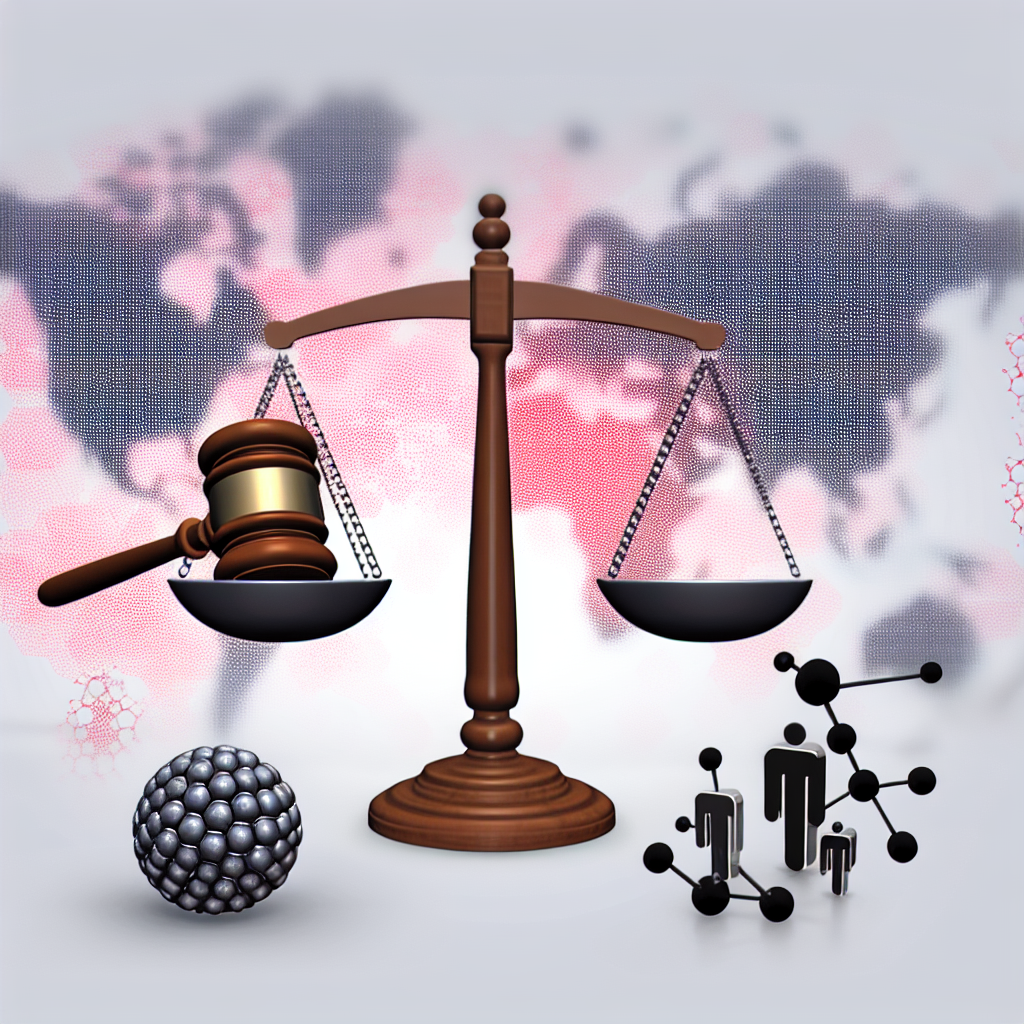
Ethical Considerations in Advanced Materials: Legal and Societal Impact
Introduction
As the field of advanced materials continues to evolve, ethical considerations surrounding their legal and societal impacts are gaining unprecedented attention. From nanotechnology to biomaterials, these innovations raise critical questions about compliance, safety, and ethical governance. At The Consultant Global, we understand the complex landscape that organizations navigate when dealing with advanced materials. Through our expert consultancy, we help clients ensure that their practices align with the necessary legal frameworks, while fostering ethical mindfulness that respects societal implications. This article delves into the legal considerations and societal impacts of advanced materials, empowering businesses to make informed decisions in a rapidly changing environment.
The Legal Framework Surrounding Advanced Materials
Understanding Regulations
The legal landscape for advanced materials is multifaceted, governed by numerous regulations that vary across jurisdictions, including the U.S., U.K., and UAE. It encompasses environmental standards, safety regulations, trade controls, and intellectual property laws. Organizations must navigate this intricate web to ensure compliance and mitigate risks associated with innovation.
Key U.S. Regulations
- Toxic Substances Control Act (TSCA): This act empowers the EPA to regulate the manufacture and use of chemical substances, including advanced materials.
- Federal Food, Drug, and Cosmetic Act (FFDCA): Governing materials used in food packaging and pharmaceuticals, this act ensures products are safe for consumer use.
- Occupational Safety and Health Administration (OSHA) Standards: Mandates safety practices for workers involved in handling advanced materials.
U.K. and EU Regulations
In the U.K. and EU, initiatives such as Reach (Registration, Evaluation, Authorisation, and Restriction of Chemicals) set stringent guidelines for chemical materials, emphasizing sustainability and public health considerations.
UAE Practices
UAE legislation around advanced materials focuses on sustainability, environmental protection, and compliance with international standards. Companies operating in the region must align with local regulations to enhance their market position and foster trust among consumers.
Ethical Considerations in Advanced Material Development
Corporate Social Responsibility (CSR)
Organizations developing advanced materials are increasingly held accountable for their social and environmental footprints. Robust CSR practices can enhance brand reputation and ensure compliance in today’s socially conscious market. CSR initiatives should include:
- Responsible sourcing of raw materials
- Minimizing environmental impact during production
- Maximizing the benefits of innovation for society
Safety and Efficacy
The ethical implications of materials developed for consumer use—especially in the medical and food sectors—are profound. Ensuring safety and efficacy through rigorous testing and transparent reporting of findings is not just a regulatory requirement; it’s an ethical imperative.
Informed Consent and Transparency
Informed consent takes on a new dimension when advanced materials interact with human health. Companies must prioritize transparency in their research and development, ensuring that stakeholders are informed and engaged regarding potential risks and benefits.
Societal Impact of Advanced Materials
Driving Societal Progress
Advanced materials have the potential to drive significant advancements across various sectors—from healthcare advancements to environmental sustainability initiatives. Understanding the social implications of these innovations can help companies align their strategies with greater societal goals.
Environmental Considerations
- Lifecycle Assessment: Companies are increasingly using lifecycle assessments to evaluate the environmental impacts of advanced materials, fostering sustainable practices.
- Waste Management: Innovations must focus on minimizing waste and maximizing recyclability, leading to a more circular economy.
Equity and Accessibility
While advanced materials can revolutionize industries, they may also exacerbate inequalities if access to innovations is uneven. Ensuring that these advancements are accessible to all demographics is essential for fostering social equity.
Conclusion
Advanced materials carry significant potential for innovation and societal benefit; however, they also pose complex legal and ethical challenges that must be navigated with care. As consultants at The Consultant Global, we leverage our deep expertise and multicultural understanding to guide organizations through these waters. Our dedication to responsible consulting means we align ethical practices with business strategies brandishing unique insights into diverse markets.
By prioritizing compliance and ethical considerations, your organization can harness the advantages of advanced materials while making a positive societal impact. Trust The Consultant Global as your partner in navigating the complexities of this evolving industry, as our extensive experience and language skills uniquely position us to deliver value across cultures in the GCC and UAE.
Embrace the future of advanced materials with confidence, and let us at The Consultant Global be your trusted advisor in turning challenges into opportunities.




Leave a Reply